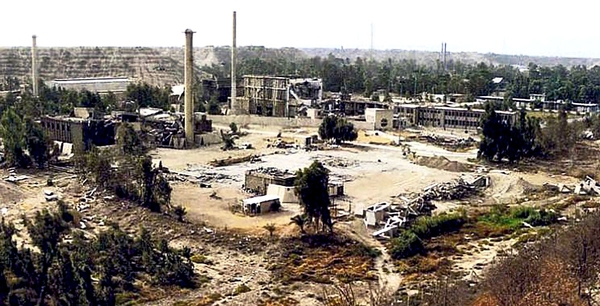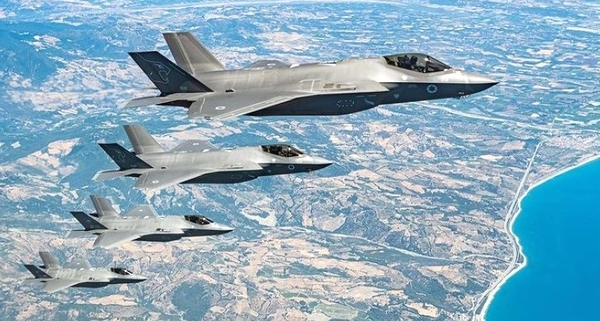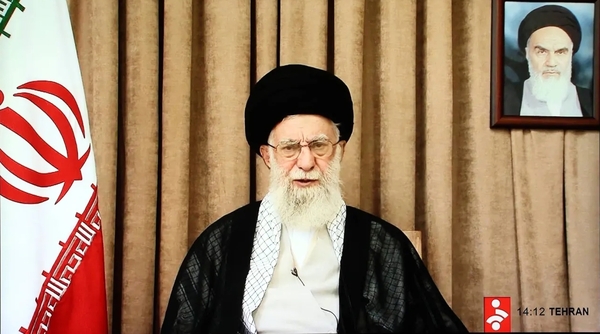For those who follow international politics, the days following Israel's June 13 attack on Iran meant an addictive check of the smartphone every few hours to learn the latest twist. From that avalanche of surprises, twelve stand out, one marking each day of the Twelve-Day War. A question about the future follows each historical snippet.
For starters, the American side:
1. The White House cowboy succeeded
An uninhibited, reckless, norm-breaking egomaniac dominates American public life as no politician in 236 years. Yes, Donald Trump served as president once before, but he then felt relatively constrained. Four years out of power, some of it sitting humiliated in a dingy courtroom, meant a return to the presidency raring to do things his way, ignoring customs, caution, and propriety. This initially played out domestically, with an unprecedented assertiveness vis-à-vis the executive branch, Congress, and the courts. The Israel-Iran War took it to the world stage, with Trump apparently solo extemporizing his own rules, strategies, and communications, startling even his own aides. To a remarkable extent, his efforts worked. Is this a one-time fluke or a sign of things to come?
2. Washington preempted a potential nuclear enemy
Harry Truman did not prevent the Soviet Union from going nuclear, nor did Lyndon Johnson stop Communist China, or George W. Bush North Korea. Trump's decision to attack Fordow, Natanz, and Isfahan, therefore, creates a hugely important precedent for U.S. foreign policy. Not less important, he threatened "future attacks [that] would be far greater and a lot easier," suggesting he is ready to strike again should Tehran not surrender its enriched uranium. Israel has preempted thrice (Iraq in 1981, Syria in 2007, Iran in 2025); does it now have in the United States an active non-proliferation partner?
 Iraq's Osirak reactor in ruins. |
3. Americans can still lead
No other outside government had meaningful influence over the Israel-Iran confrontation. Trump's outsized personality sidelined the world. Allies meekly went along with him, adversaries mumbled ineffectual words of criticism – none of it made a difference. Most notably, Beijing and Moscow offered Tehran only the thin gruel of verbal support. Will this disproportionate role continue when a Democrat next becomes president?
4. A partisan Washington-Jerusalem bond
The full American role in helping Israeli forces attack Iranian sites only started to emerge after the fighting stopped. For example, we now know that the U.S. Air Force provided hundreds of aerial refuelings for Israeli jets over Syria or Iraq on their way to Iran. A strong Republican party partnership with Israel makes obvious sense, as Israel comes closer to conservative American values of any foreign country, even Australia, Canada, or Great Britain. At the same time, that harmony comes at the expense of Democratic party support. (Democrats just nominated a candidate for mayor of New York City who calls Israeli actions in Gaza a "genocide.") Does Israel's close teamwork with Trump mean the next Democratic president will ditch it?
5. A quick, decisive American Middle East success
 The passengers of Reach 871, a U.S. Air Force C-17 flying from Kabul to Qatar on Aug. 15, 2021, carrying 823 Afghans. |
6. Alarmists made wrong predictions
 Tucker Carlson's prediction aligned with his biases, not reality. |
Second, some Israeli surprises:
7. Air power won the day
Analysts concur that prevailing in war requires a willingness to place troops on the ground. The limited Israeli and American goals in this confrontation made it possible to defy that general rule: bombs can more easily knock out infrastructure than conquer and occupy land. Will this exception lead to an over-emphasis on air power?
8. Pre-placed agents changes the battlefield
In-country agents, many Iranian, dispatched drones and targeted assassinations. In a remarkable coincidence, Ukraine unleashed its Operation Spiderweb on June 1, just twelve days before Israel's Operation Rising Lion. Both required over a year of planning, both involved extensive clandestine activities in enemy territory, and both led to surprise attacks that inflicted highly visible damage.
While sabotage in hostile territory is hardly new, these operations set a new standard: destroying strategic aircraft in the Ukrainian case, knocking out missile launchers and eliminating key regime figures in the Israeli one. "Deep integration of special operations forces, autonomous drones, and AI-enabled intelligence, surveillance, and reconnaissance is now the baseline for theater entry" writes Benjamin Jensen of the Center for Strategic and International Studies. Is he right that this amounts to a "new way of war"?
9. Israel dominates
With the exception of Türkiye, Israel alone in the Middle East seriously aspires to mount a conventional force (that is, airplanes, tanks, and ships). Plus, Israel's intelligence accomplishments continue to astonish. If Israel's victory in June 1967 ranks as the most lopsided in history, its June 2025 success ranks not far behind. That is, first the Six-Day War, now the Twelve-Day War. Note that the recent campaign involved far more complex operations than that old one. Also, today's regional environment favors Israel far more than the one 58 years ago. Trump's special Middle East envoy Steve Witkoff publicly expects "some pretty big announcements on countries that are coming into the Abraham Accords." Is this the Saudi moment?
 Israeli F-35s in formation. |
10. Israel's Gaza failure
However quick and brilliant its success versus Iran, a country of 90 million, Israel continues to fare dismally in its other war, the one against Hamas, where it has stumbled through 631 days, unable to knock out a bunch of Iranian-backed thugs. Israel's security establishment seems bifurcated. An offensive, fight-to-win part deals with states and their proxies, while a defensive, calm-seeking counterpart deals with Palestinians. The former basks in a deserved reputation for creativity, ingenuity and daring. The latter represents its uncelebrated, dull, and reticent counterpart. The former seeks victory, the latter seeks quiet. The one wins, the other struggles. Can the dismal part learn from its successful counterpart?
Finally, two Iranian surprises:
11. Performative war replaced real war
Not for the first time, Tehran only pretended to fight Israel and the United States so it could compliment itself on winning a great victory. This round featured a theatrical attack on an American base in Qatar. The Islamic Republic politely and discreetly informed Doha and Washington of its plan to lob missiles at the base, which did minimal damage and caused no injuries or fatalities. Ignoring this symbolism, Tehran of course claimed that its "powerful armed forces ... destroyed the US air base in Al-Udeid, Qatar." In addition, Supreme Leader Ali Khamene'i announced that Israel "almost collapsed" under an Iranian barrage. Will the Iranian populace accept this blatant deceit or use it as a cudgel against their rulers?
 A low-energy Ali Khamenei delivered his third video message since Israeli forces attacked Iran, on June 26, 2025. |
12. Tehran attacked an ally
Qatar is the closest the Islamic Republic has to a friendly neighbor, but that did not stop the missiles from flying at it. A conspiracy theory holds that Doha consented to the operation to improve its standing among Americans, but that overestimates the importance of U.S. opinion. Tehran's appeasement via flattering words ("This action does not pose any danger to our friendly and brotherly country, Qatar, and its noble people") cannot undo the inherent aggression, which Qatar "strongly" condemned and called a "flagrant violation" of its sovereignty. The New York Times calls this attack "a nightmare come true" for Iran's rich and vulnerable neighbors. How deeply will this attack sour relations with them?
Those twelve days should have repercussions long into the future.
Daniel Pipes (DanielPipes.org, @DanielPipes) is founder of the Middle East Forum and author of Israel Victory: How Zionists Win Acceptance and Palestinians Get Liberated (Wicked Son). © 2025 by Daniel Pipes. All rights reserved.